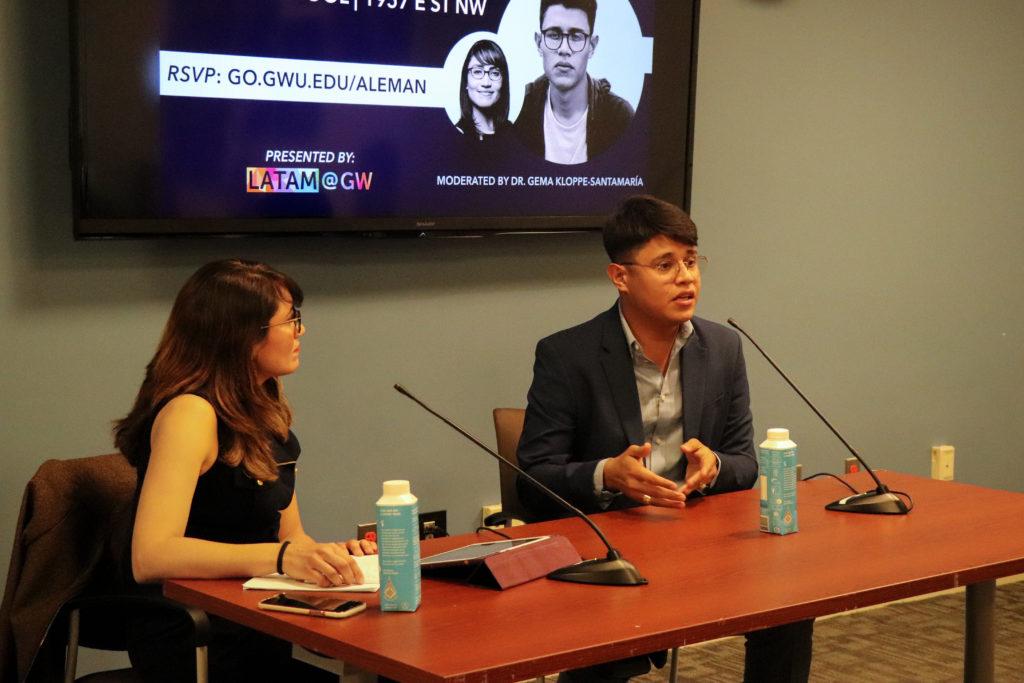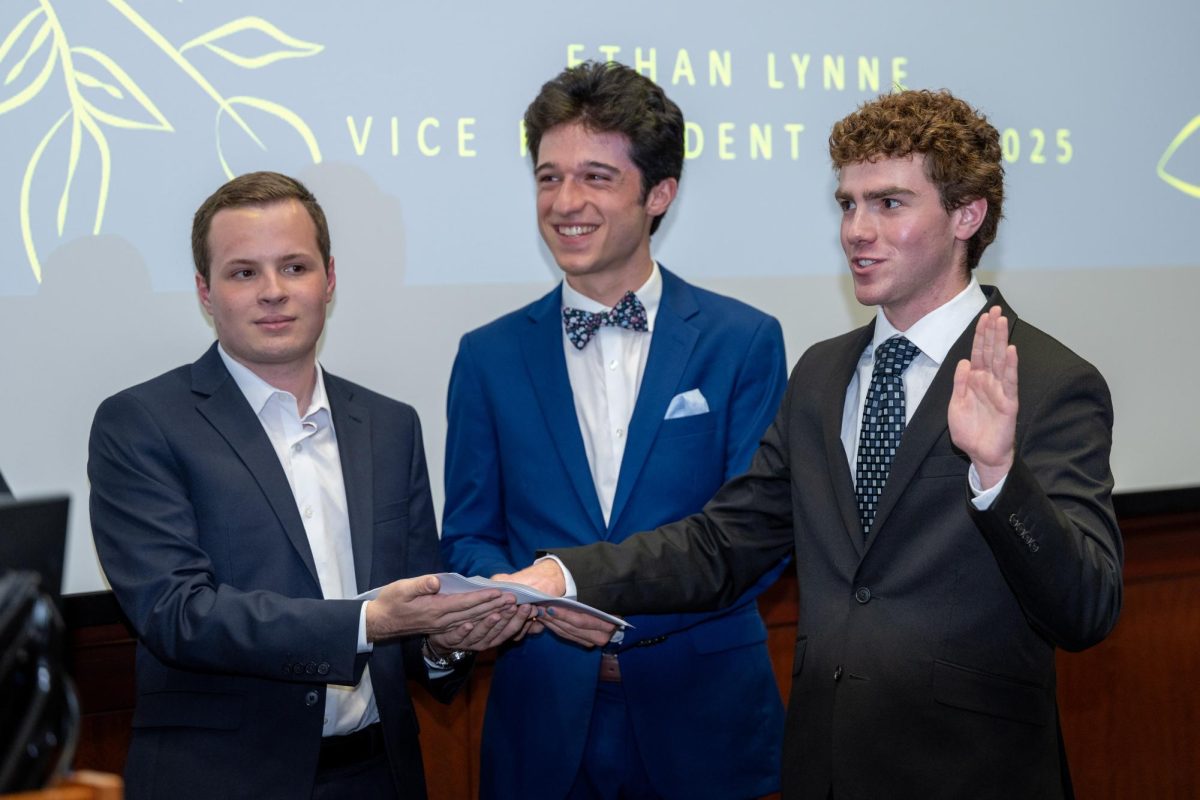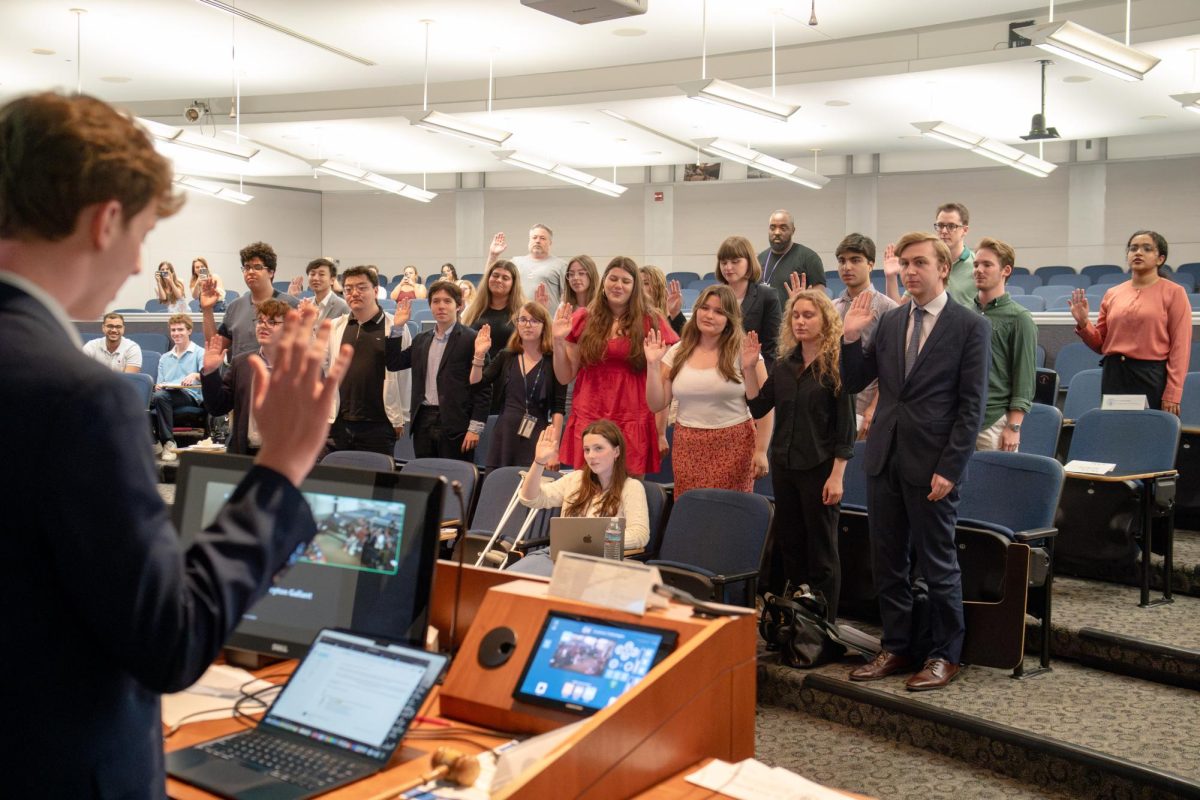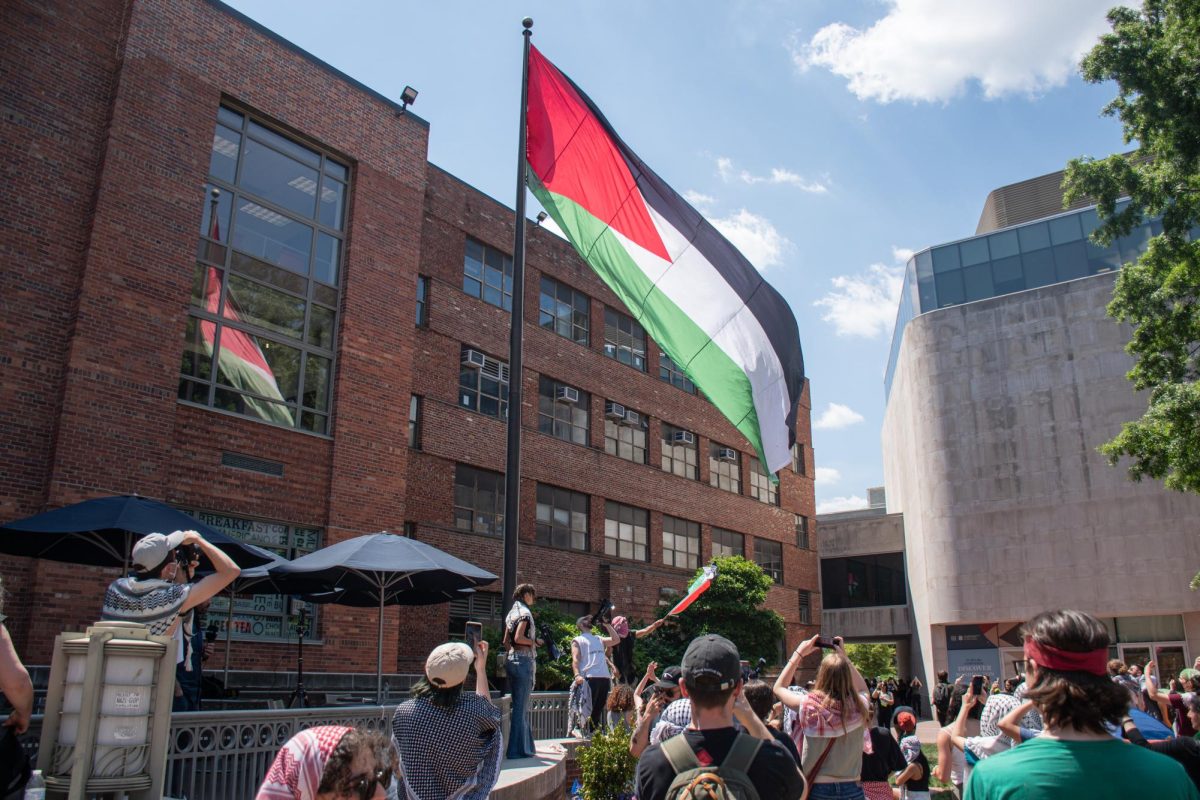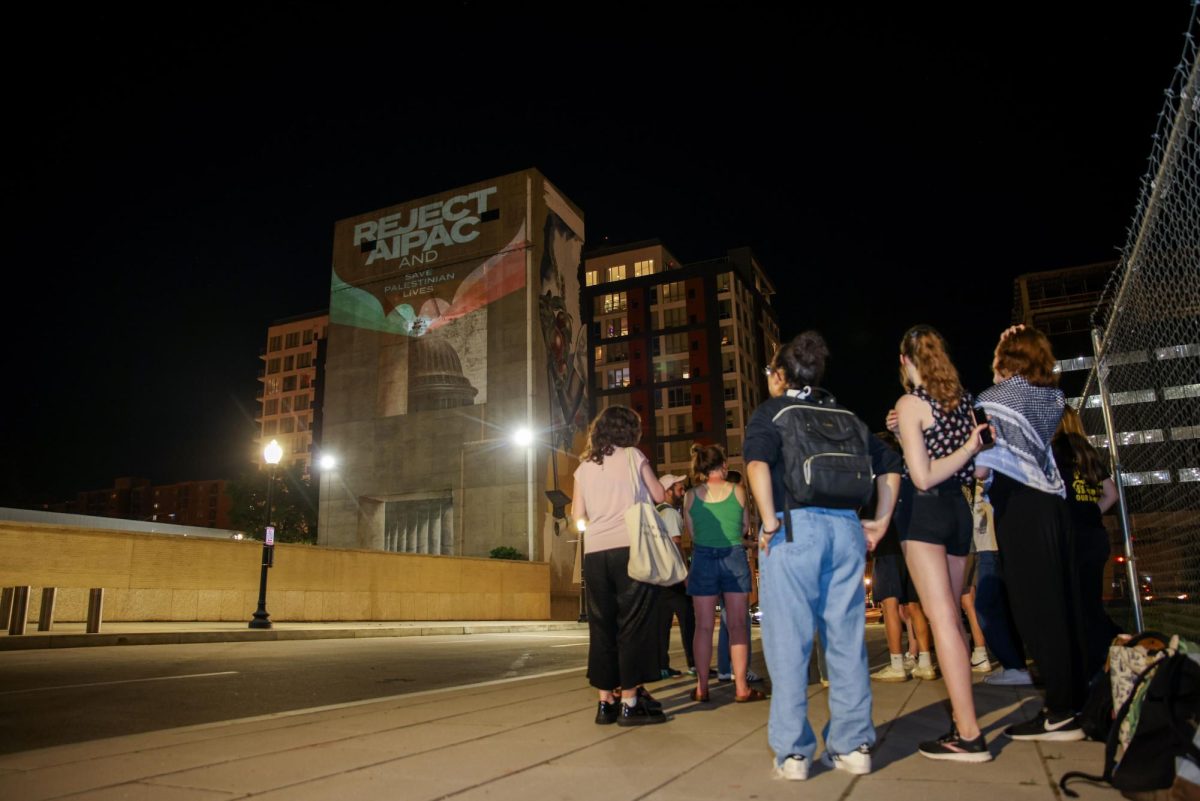An anti-government political dissident discussed the political situation in Nicaragua at the Elliott School of International Affairs Tuesday.
Lesther Alemán, a former University of Central America student and pro-democracy activist that the Nicaraguan government jailed in February 2022, said the country should unite to expand social welfare programs, oust President Daniel Ortega from power and restore democracy in the country, which declined after a series of undemocratic elections over the last decade. The event was hosted by LATAM@GW and moderated by Gema Kloppe-Santamaría, an assistant professor of history and international affairs.
Alemán was jailed on “conspiracy to undermine national integrity” charges in 2022 after telling Ortega to surrender in 2018. That year, Ortega announced his administration would decrease retirement benefits and raise payroll taxes to fund the country’s social security program, sparking mass revolts.
Alemán said protests against the Nicaraguan government arose when the government agreed to build an interoceanic canal between the Pacific and Atlantic oceans in 2015 to bring investment into the country. He said farmers whose land the government planned to expropriate to build the canal and students who opposed the Ortega regime’s social security changes united in opposition against the government’s actions.
“That created the first protests that were too many to count, and they were all repressed,” Alemán said.
Alemán said he joined university protests against the social security pension reform and the corruption of the Nicaraguan government. He said police started beating unarmed university students to silence protesters and the opposition movement from addressing public concerns.
“We were just youth, unarmed,” Alemán said. “We didn’t even have loudspeakers, we only had two or four placards. When we went out, the police surrounded and they started beating us.”
The Nicaraguan government violently cracked down on student and farmer protests between 2018 and 2022. The Ortega regime jailed and exiled hundreds of political opponents for speaking out against the government. The regime also implemented governmental reforms which made it more difficult for opposition candidates to run in elections and banned international organizations from observing the electoral process.
Alemán said there is going to be a power vacuum in the country if the Ortega regime is deposed. He also said relieving social, economic and political agony by 2026 is the top priority of the opposition.
“After Ortega’s departure, the transition is going to be extremely difficult,” Alemán said. “Who is going to take the leading role afterwards?”


